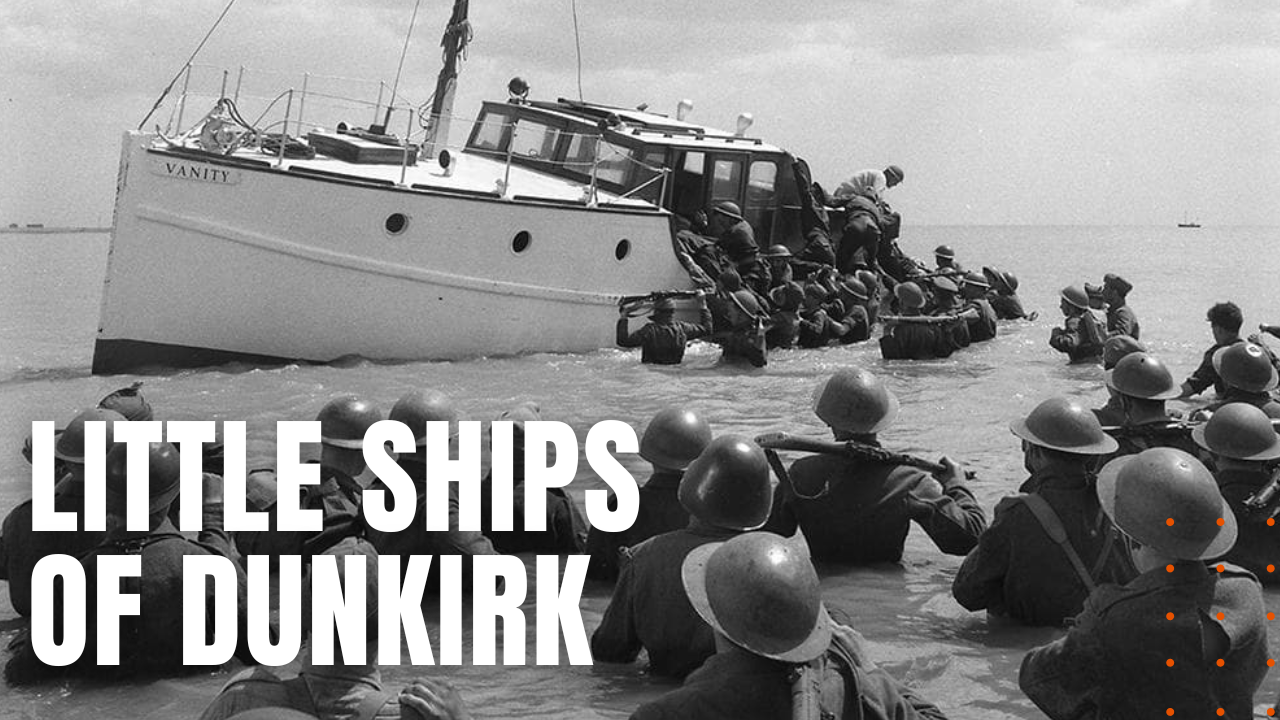Operation Dynamo: The Little Ships of Dunkirk

Cut off from their advance into France by a pincer movement from the German Army, in late April of 1940, when British prime minister Winston Churchill was apprised that some 338,000 British and French troops were trapped along the shores of Dunkirk, Churchill predicted the loss of so many fighting men would cost Britain the war, as well as one of the greatest military defeats in recent centuries. In response, Operation Dynamo began on May 26th under the direction of Vice Admiral Bertram Ramsay, with expectations of evacuating no more than 45,000 troops, since the shallow waters off Dunkirk meant that soldiers had to wade out to larger ships, sometimes waiting in waste-deep water for hours at a time.
To The Rescue
Instead, when the call went out for all available vessels to be deployed for the rescue of trapped countrymen, some 850 Little Ships, as they became known, set sail across the Strait of Dover. Leisure and fishing craft owners responded in droves from the River Thames to ports along the south and east coast of Britain, steaming for Dunkirk at great haste, where trapped soldiers endured strafing and bombing runs by the still superior Luftwaffe, who ramped up their level of terror by attaching screaming whistles to the undercarriage of Stuka dive bombers. While some of the Little Ships were requisitioned by the government against the protests of their owners, the majority were volunteered without hesitation, and while some skippers insisted on sailing their own boats across the Strait, the majority were manned by British naval personnel, who plucked men from the waters off Dunkirk and ferried them to larger ships waiting offshore. Good weather aided the rescue mission, while a second saving grace was Ramsay’s creative use of Dunkirk’s Harbor Mole or breakwater, which allowed larger ships to onboard men at a much faster pace, while Hitler’s still mystifying halt order to his advancing troops at Dunkirk gave the Allies a merciful reprieve from what Churchill later called “a miracle of deliverance.”
Warm Welcome Home
Fully expecting a frosty reception on their defeated homecoming—publicly vilified with their tail between their legs—instead, the rescued men found themselves welcomed home like heroes, all at a time when Great Britain was in desperate need of a major morale boost, a little more than a month before their fight for survival in the Battle of Britain. Given the vast amount of equipment and weaponry left behind at Dunkirk, some historians believe that the loss of so many war assets left Britain exposed for an immediate invasion by Nazi forces, had the Germans had the plans or will or ability to advance on England at the time, making the Little Ships of Dunkirk, a vital boost to a nation’s dogged sense of freedom.
